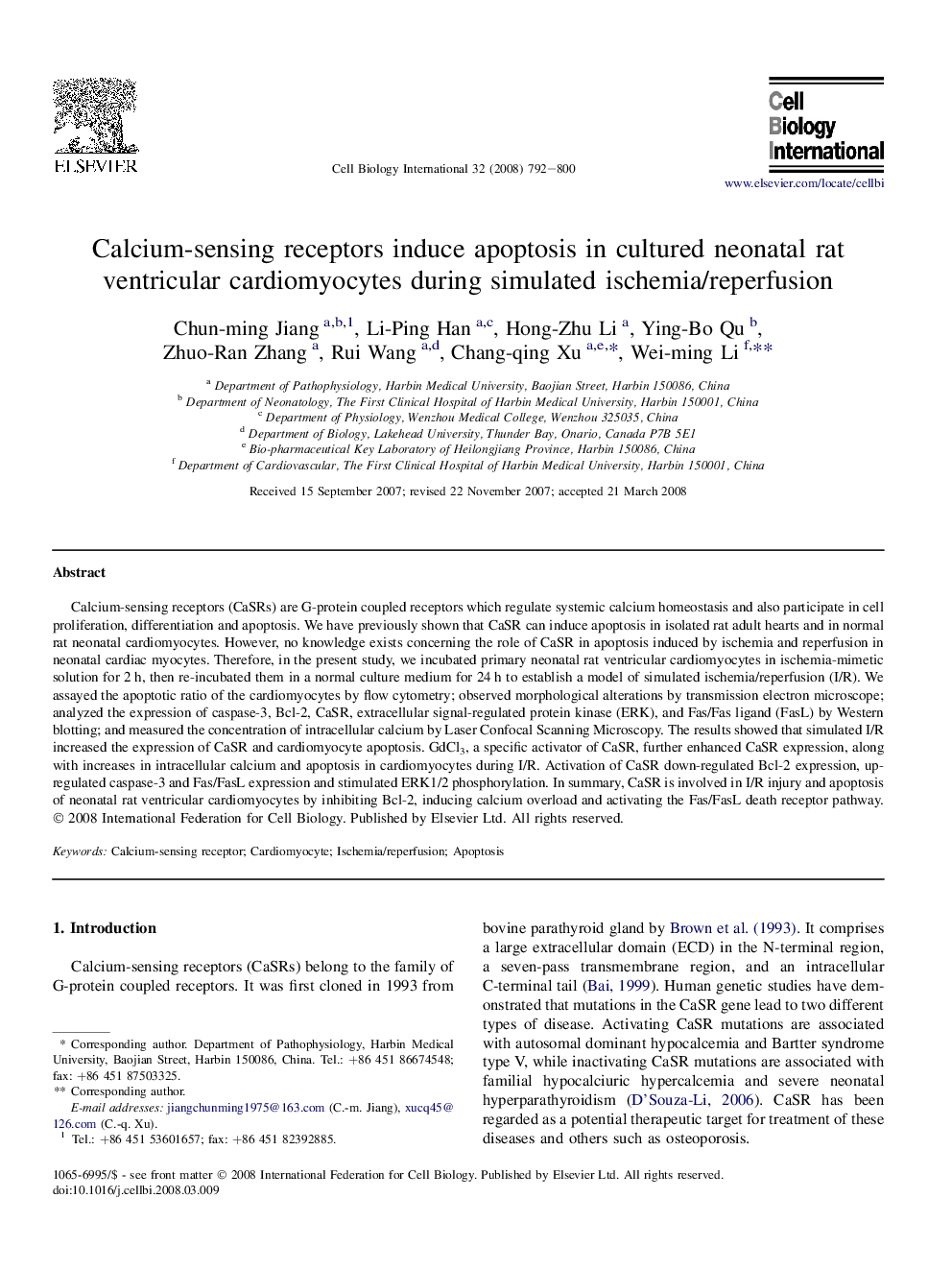| Article ID | Journal | Published Year | Pages | File Type |
|---|---|---|---|---|
| 2067333 | Cell Biology International | 2008 | 9 Pages |
Abstract
Calcium-sensing receptors (CaSRs) are G-protein coupled receptors which regulate systemic calcium homeostasis and also participate in cell proliferation, differentiation and apoptosis. We have previously shown that CaSR can induce apoptosis in isolated rat adult hearts and in normal rat neonatal cardiomyocytes. However, no knowledge exists concerning the role of CaSR in apoptosis induced by ischemia and reperfusion in neonatal cardiac myocytes. Therefore, in the present study, we incubated primary neonatal rat ventricular cardiomyocytes in ischemia-mimetic solution for 2Â h, then re-incubated them in a normal culture medium for 24Â h to establish a model of simulated ischemia/reperfusion (I/R). We assayed the apoptotic ratio of the cardiomyocytes by flow cytometry; observed morphological alterations by transmission electron microscope; analyzed the expression of caspase-3, Bcl-2, CaSR, extracellular signal-regulated protein kinase (ERK), and Fas/Fas ligand (FasL) by Western blotting; and measured the concentration of intracellular calcium by Laser Confocal Scanning Microscopy. The results showed that simulated I/R increased the expression of CaSR and cardiomyocyte apoptosis. GdCl3, a specific activator of CaSR, further enhanced CaSR expression, along with increases in intracellular calcium and apoptosis in cardiomyocytes during I/R. Activation of CaSR down-regulated Bcl-2 expression, up-regulated caspase-3 and Fas/FasL expression and stimulated ERK1/2 phosphorylation. In summary, CaSR is involved in I/R injury and apoptosis of neonatal rat ventricular cardiomyocytes by inhibiting Bcl-2, inducing calcium overload and activating the Fas/FasL death receptor pathway.
Related Topics
Life Sciences
Biochemistry, Genetics and Molecular Biology
Biophysics
Authors
Chun-ming Jiang, Li-Ping Han, Hong-Zhu Li, Ying-Bo Qu, Zhuo-Ran Zhang, Rui Wang, Chang-qing Xu, Wei-ming Li,
